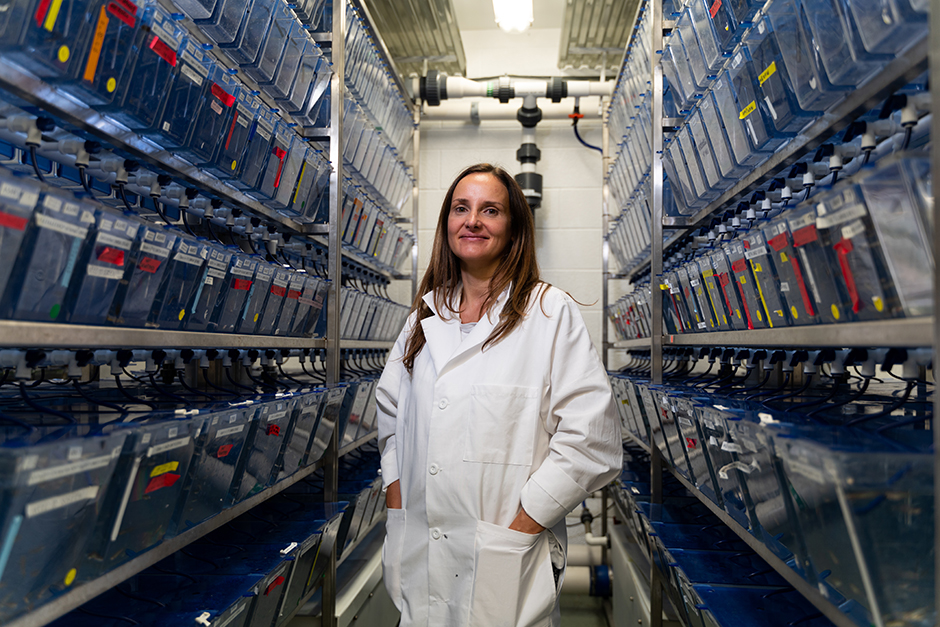What can a diminutive fish species tell us about a debilitating condition that, by some estimates, will afflict more than one in four of us at some point in our lives? As Sandra Rieger, associate professor of biology, has discovered, quite a lot—so much so, in fact, that she has launched an entrepreneurial venture inspired by her insights.
Rieger studies appendage regeneration and peripheral neuropathy, a degenerative nerve condition that causes symptoms such as numbness, tingling, temperature sensitivity, and pain in the hands and feet. Frequently associated with diabetes and alcoholism, neuropathy is also an all-too-common side effect of chemotherapy treatment for cancer.
Prior thinking about neuropathy’s cause focused on damage to neurons and their nerve endings. But Rieger’s studies with zebrafish point the way to another possibility.
Darlings of modern biomedical research, zebrafish reproduce rapidly, are transparent when young, and have prodigious powers of regeneration. They also share more than 70 percent of the human genome. Rieger’s studies with zebrafish revealed an enzyme in its skin that causes degradation of the skin and in turn promotes the degeneration of the nerve endings, as well as chemicals that inhibit the enzyme’s effects. “We don’t yet know whether or not these inhibitors will work in humans,” she says. “But that enzyme is there in chemotherapy patients with neuropathy.”
The stated mission of Rieger’s startup, Avantyx, is “to cure chemotherapy-induced nerve damage” by bringing the fruits of her team’s research to market, with intellectual property owned by the university.
“We registered Avantyx at the Cambridge Innovation Center, next to the medical campus,” Rieger says. “It’s an amazing, supportive incubator space for many different startups.”
To continue her research, Rieger has secured an initial round of government funding from the National Cancer Institute. In coordination with the University’s LaunchPad entrepreneurship center and through its newly established Startup Accelerator program, Avantyx is currently seeking angel investors as well as additional grants.
“The University has been tremendously helpful in the process of starting a company,” she notes. “We’ve been able to access seminars, webinars, connections, guidance—so many great resources for those of us who want to build on our research and translate it into real-world solutions.”
Rieger’s work with zebrafish could ultimately lead to even more ambitious applications, such as fostering limb regeneration in humans. In the meantime, initial results on the neuropathy front have been promising enough for her team to begin research on mammals. If successful, the studies could eventually spawn drugs to be tested in human clinical trials.
Considering the prevalence of cancer, the need is urgent—and the pace of progress will be largely dictated by the next few rounds of fundraising. Philanthropic support can help accelerate research toward studies with human subjects. With adequate funding, Rieger says, human clinical trials could begin in three to five years.
“The next step is finding partners to take our enterprise to the next level.”

